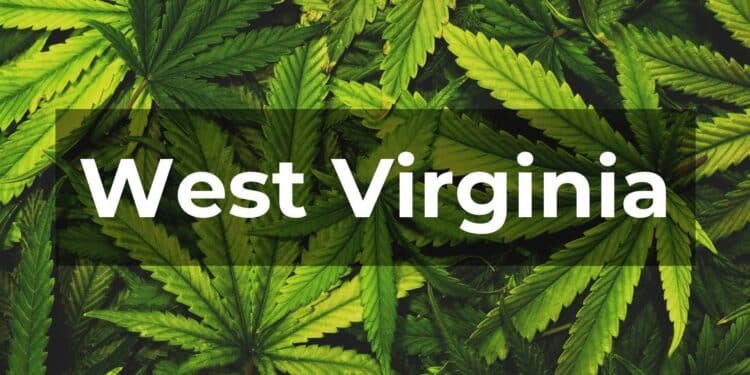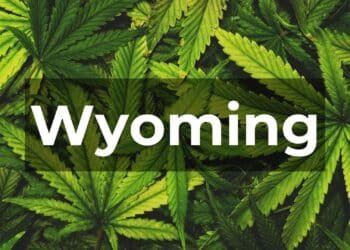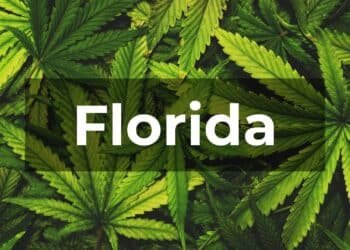Many are curious about marijuana laws in the United States, especially in West Virginia. Medical marijuana was legalized in 2017. But, using it for fun is still a gray area.
West Virginia’s laws mainly cover medical use. By October 2023, almost 30,000 people had medical marijuana cards1. This shows a lot of people are using the medical program. But, using marijuana for fun is still not allowed.
Key Takeaways
- Medical marijuana was legalized in West Virginia in 2017.
- Possession and use of recreational marijuana remain illegal in the state.
- Nearly 30,000 residents hold medical marijuana cards as of 20231.
- Local regulations, such as those in Morgantown and Charleston, have begun to reduce penalties for marijuana possession.
- Discussions about further legalization or decriminalization continue in the state legislature.
Is Marijuana Legal in West Virginia?
Right now, West Virginia doesn’t allow people to use marijuana for fun. But, it does allow medical marijuana under certain rules. This makes West Virginia strict on cannabis, unlike nearby states like Maryland, Ohio, and Virginia where it’s legal10.
Current Legal Status
In West Virginia, using or having marijuana is against the law. In 2010, the state spent about $17 million on enforcing these laws10. In Charleston, there were 178 arrests for just having marijuana in 202310.
It’s clear that Black people are arrested more for marijuana. They are 7.3 times more likely to be arrested than white people10. Also, Black people make up 30% of arrests in Charleston, even though they’re not the majority of the population10.
Potential Future Changes
The debate on legalizing marijuana in West Virginia is getting louder. Senate Bill 386 is a key topic in these talks. Over 60% of voters want to see marijuana legalized in WV11.
But, making changes has been slow11. Governor Jim Justice says he’ll support legalization if a bill reaches his desk11.
In 2022, West Virginia saw more fentanyl overdose deaths than any other state11. This raises concerns about tainted marijuana, possibly with fentanyl11. The connection between drug laws and health is key in deciding West Virginia’s marijuana policies.
Overview of Marijuana Legislation in West Virginia
West Virginia legalized medical marijuana on April 19, 2017, with Senate Bill 3862. The state’s first medical marijuana dispensary opened in November 20212. This marked a big step in WV’s marijuana laws. Medical marijuana laws in West Virginia focus on safety and following rules. For example, dispensaries can’t be near schools or daycare centers2.
- Dispensaries can give medical cannabis with valid ID cards3.
- Edibles can have only 10 mg of THC per serving3.
- Patients can buy up to a 30-day supply of medical cannabis2.
Cannabis has a long history, with evidence of use for at least 12,000 years4. The Marihuana Tax Act of 1937 changed cannabis laws a lot4. It taxed growers, sellers, and buyers and required strict reporting4.
Local governments in West Virginia play a big role in enforcing marijuana laws. Senate Bill 677 in February 2024 aims to add edible medical cannabis to state policy3. As West Virginia’s laws evolve, it’s important to keep up with these changes.
Current Status of Medical Marijuana
West Virginia has made big steps in its Medical Cannabis Program. It lets people with certain health issues get a medical marijuana card. Almost 30,000 people are using it to find relief5.
Medical Cannabis Program Details
The program started in 2019 under Senate Bill 386. It offers treatment options for those with severe health problems6. Only certain types of medical cannabis are allowed, like pills and oils. But edibles and smoked forms are not6.
Employers in West Virginia can’t discriminate against employees who use medical cannabis legally. They must allow it outside of work, but not during work hours5. Patients also have to follow strict rules on how much they can have and how it’s stored5.
Qualifying Medical Conditions for Cannabis
The program lists many serious health issues as qualifying conditions. These include cancer, HIV/AIDS, ALS, and Parkinson’s disease6. To get a card, you need a photo ID, proof of where you live, and a doctor’s approval6. There are also rules to stop misuse and ensure safety5.
The state keeps working to improve the program. It aims to help people while keeping everyone safe. This effort makes sure the program meets the health needs of West Virginia’s residents.
Proposed Changes for Recreational Use
In recent years, the push for legalizing recreational marijuana has grown across the United States. West Virginia is joining this trend, aiming to regulate cannabis for adult use. This move is part of a broader effort to change laws.
Senate Bill 386 and Its Implications
Senate Bill 386 aims to make cannabis legal for production, sale, and use by adults in West Virginia. This aligns with states like Maryland, Ohio, Virginia, and Washington, D.C., which have already made it legal7. If passed, the bill would let counties decide on cannabis sales and production.
The financial gains from legalizing cannabis in West Virginia could be huge. A 2016 report suggested it could bring in $26 million to $45 million a year from locals. With tourists, that number could jump to $116 million to $194 million annually7. This could help the state’s economy and bring in more taxes.
More West Virginians are now supporting legalizing cannabis for fun. A 2021 poll showed 70% of people want to end federal bans on recreational cannabis7. This growing support might encourage lawmakers to take Senate Bill 386 more seriously.
Even though other states have passed similar laws, West Virginia’s bills in 2024 didn’t make it. Senate Bill 386 and House Bill 4873 stalled in committee8. Still, supporters are pushing for future action on this issue.
Legalizing cannabis in West Virginia could also improve public safety and fairness. Mayor Williams of Huntington believes it could make marijuana safer and cut down on arrests. It could also boost tourism and the economy, like in Colorado and California7. This shows that Senate Bill 386 could bring many benefits if it passes.
Local Government Stance and Actions
In West Virginia, local governments are making big moves to change cannabis laws. They want to lower penalties for having cannabis. This shows a shift towards more progressive policies compared to the state.
Charleston’s Push for Reduced Penalties
Charleston is leading the way in reducing marijuana possession penalties. Their policy aims to lower arrest rates for small amounts of cannabis. This is important because of racial disparities in arrests.
In 2018, Black people were arrested for marijuana possession seven times more than white people. This shows the need for change9.
Morgantown City Council’s Cannabis Ordinance
The Morgantown City Council has made big changes with their cannabis ordinance. In 2020, they passed a law for a $15 fine for having 15 grams or less of marijuana9. This shows the city’s effort to tailor laws to its residents’ needs.
Charleston and Morgantown’s policies mark a turning point in West Virginia’s cannabis laws. They aim to ease the load on law enforcement and address social issues. Even though state bills failed in 2024, local efforts continue9.
Impact on Public Health and Safety
The debate on cannabis health is ongoing among health experts and lawmakers. Some see its benefits, like managing chronic pain, as a reason to use it for medical reasons. But, there are worries about its risks, especially for young people. It’s important to understand both sides to give a fair view of cannabis’s health impact.
Health Risks and Benefits
Marijuana is legal for medical use in 33 states, showing its acceptance for treating various health issues12. Recreational use is legal in 11 states for adults over 2112. Yet, research continues to uncover marijuana’s health effects. For instance, studies suggest CBD might not hurt driving skills but could slightly raise the risk of accidents and slow down braking13.
Law Enforcement Resources
Changes in cannabis laws affect law enforcement too. They could lessen the workload by reducing marijuana-related crimes. The discussion on law enforcement and cannabis is ongoing, focusing on racial disparities and social impacts. It’s noted that racial/ethnic differences exist in marijuana law enforcement in the U.S., highlighting legal system inequities14.
Policy factors like advertising rules, personal growing limits, and local control influence recreational marijuana laws12. Law enforcement must deal with these policies to enforce laws fairly and effectively.
Public Opinion and Political Views
In West Virginia, opinions on cannabis legalization are changing. This section explores how different political groups and voters see cannabis.
Democratic and Republican Perspectives
Democrats and Republicans have different views on cannabis laws. Democrats often support making cannabis legal for both medical and recreational use. They see it as a way to make money for the state and fix social justice issues.
For example, in 2018, Black people in West Virginia were arrested for marijuana more than seven times as often as white people. This shows a big racial gap in arrests1. Republicans, however, tend to be more cautious. They worry about safety and moral issues, which makes them oppose legalizing cannabis for fun.
Voter Sentiment on Cannabis Legalization
More West Virginians are starting to support legalizing cannabis. Across the U.S., 88% of adults think marijuana should be legal. This includes 59% who want it for both fun and medical use, and 30% for medical use only15.
In West Virginia, over 30,000 people have medical marijuana cards. This shows a big demand for cannabis for health reasons1. Surveys also show most voters want to end federal bans on recreational cannabis. This shift in opinion mirrors national trends.
As debates on cannabis laws go on, public opinion is key. Lawmakers in West Virginia are working on bills to change laws. The number of marijuana arrests has dropped, from 1,600 in 2022 to half that in 20101. It’s clear that voters and politicians are going through a big change on cannabis laws.
Legal Comparisons: West Virginia vs. Neighboring States
West Virginia’s marijuana laws are very different from its neighbors. In 2023, 25 states, including Virginia, made recreational cannabis legal16. But West Virginia still has strict rules against marijuana use.
For medical marijuana, 48 states, like Pennsylvania and Ohio, have laws allowing it16. West Virginia started its medical cannabis program in 2017. It has made big changes to make it easier to use since then17
Looking at cannabis laws, most states allow selling it, but not West Virginia18. Ohio has a medical marijuana program, while Pennsylvania is working to make cannabis possession less of a crime.
Ohio allows both medical and recreational cannabis, but Virginia only allows medical use. This shows how different cannabis laws can be in the region16.
There’s also a big issue with racial disparities in West Virginia. From 2010 to 2018, black people were 7.3 times more likely to be arrested for marijuana than white people17. This is much worse than in other areas.
States like Colorado and Alaska make a lot of money from selling cannabis. Colorado lets adults have up to 2 ounces and grow six plants. This makes a big market16.
West Virginia could make $44.8 million a year from cannabis, and up to $194 million with demand from other states17.
In short, while states around West Virginia are more lenient with marijuana laws, West Virginia is strict. This affects laws, money, and society in the area.
Conclusion
The future of marijuana laws in West Virginia is looking bright. Bills like Senate Bill 386 and House Bill 4873 could make cannabis legal for adults. These plans include a 5% tax on sales, which could help the state financially19.
This is a big step for West Virginia, showing the country’s shift towards legalizing marijuana. It’s a moment of change in the state’s cannabis laws.
People’s opinions and the economy are key in these decisions. More than half of Americans have tried marijuana, even though it’s illegal at the federal level20. West Virginia’s leaders are looking at how other states have done with legalization.
They want to see the health, economic, and social benefits for themselves. Senate Joint Resolution 8 aims to let West Virginians have up to two ounces of marijuana. This shows the state is ready to move with public opinion19.
The debate is ongoing, and votes will decide the future of marijuana laws. Local areas like Charleston and Morgantown are also getting involved. They’re working on their own rules and penalties for marijuana.
West Virginia is at a turning point with marijuana. The outcome will depend on public support, laws, and local actions. The results will shape the state’s marijuana policies for years to come.
FAQ
Is Marijuana Legal in West Virginia?
No, recreational marijuana is not legal in West Virginia. But, medical marijuana has been legal since 2017.
What is the Overview of Marijuana Legislation in West Virginia?
Marijuana laws in West Virginia have changed over time. Medical marijuana was legalized in 2017. Cities like Charleston and Morgantown have their own rules and fines. The state legislature is still discussing legalizing or decriminalizing recreational use.
What are the Details of the Medical Cannabis Program in West Virginia?
West Virginia’s Medical Cannabis Program lets people with certain illnesses get a medical marijuana card. Almost 30,000 people are part of this program, showing its importance for health.
What are the Qualifying Medical Conditions for Cannabis in West Virginia?
To get medical cannabis in West Virginia, you need to have conditions like chronic pain. The state lists specific conditions that qualify for the Medical Cannabis Program.
What is Senate Bill 386 and Its Implications for Recreational Marijuana?
Senate Bill 386 wants to make it legal to grow, sell, and use cannabis in West Virginia. It also talks about letting counties decide on cannabis production and sales. This could lead to more local control.
What Actions Has the Charleston Government Taken Concerning Marijuana?
Charleston has made laws to lessen fines for having cannabis. This shows a more open view compared to the state’s laws.
What Actions Has the Morgantown City Council Taken Regarding Cannabis?
Morgantown has also made laws to reduce fines for cannabis possession. This shows the city’s effort to change its policies on marijuana.
What is the Current Legal Status of Marijuana in West Virginia?
Recreational marijuana is still illegal, but medical marijuana is allowed. Different cities have their own rules and fines for cannabis use.
What Potential Future Changes Could Occur in West Virginia’s Marijuana Laws?
With new laws being proposed and more people wanting legalization, West Virginia’s laws might change soon. Senate Bill 386 and local decisions are key in these changes.
What are the Health Risks and Benefits of Cannabis?
Cannabis can help with chronic pain but also has risks, especially for teens. There’s ongoing debate on how to manage these health issues.
How Could Changes in Cannabis Legislation Affect Law Enforcement Resources?
New laws on cannabis could change how law enforcement works. It might help them focus on other crimes by reducing marijuana-related work.
What are the Political Views on Cannabis Legalization in West Virginia?
Democrats in West Virginia usually support legalizing cannabis, while Republicans often don’t. This shows the national debate on cannabis.
What is Public Opinion on Cannabis Legalization in West Virginia?
More and more people in West Virginia want cannabis to be legal. Surveys show a growing number of people support ending federal bans on recreational cannabis.
How Does West Virginia’s Approach to Marijuana Compare with Neighboring States?
West Virginia’s marijuana laws are still strict compared to some nearby states. These states have more relaxed rules for both medical and recreational cannabis.














